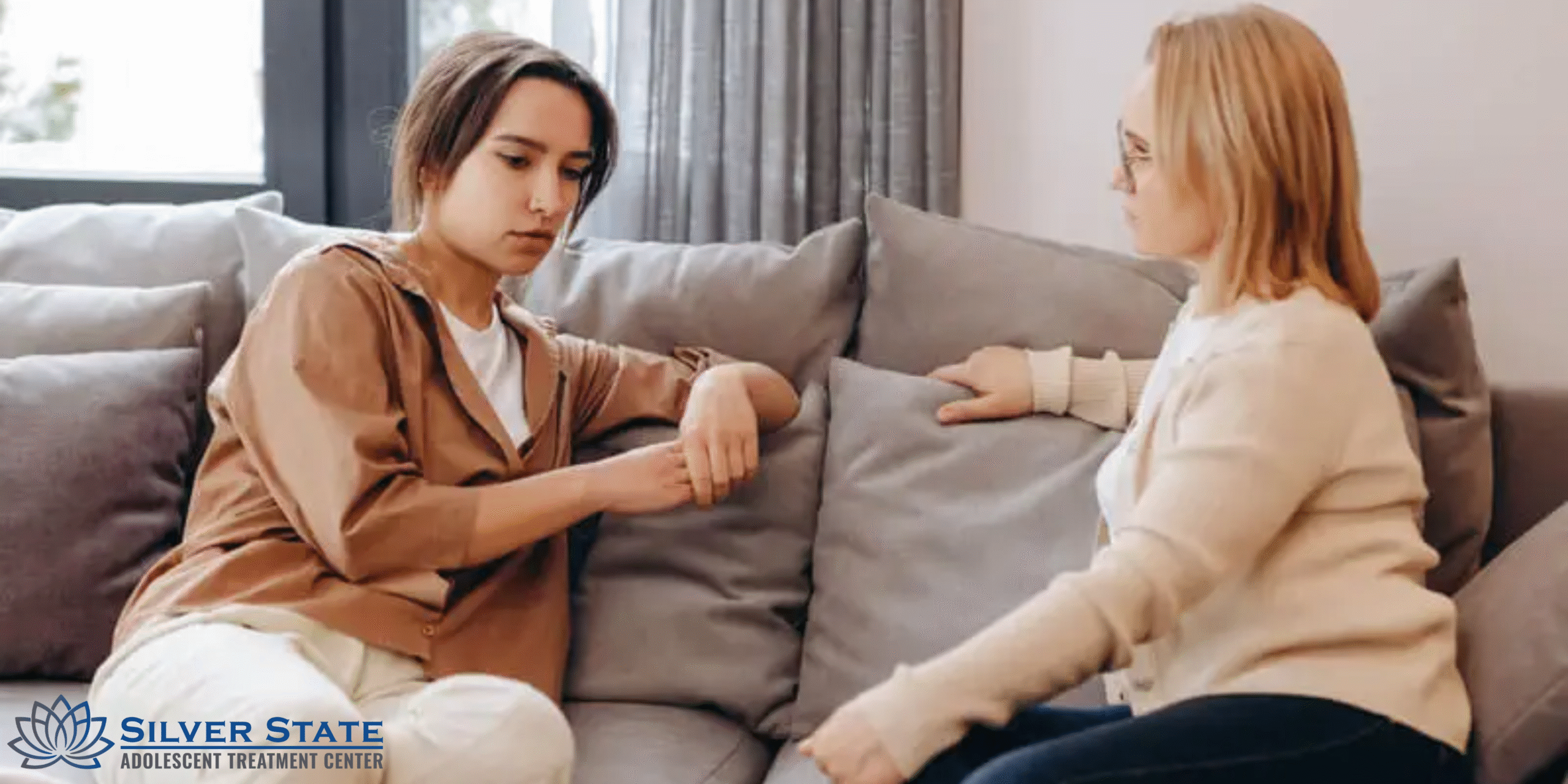Residential Treatment Centers for Youth in Las Vegas Aid Teens Struggling With DMT Psychosis

Table of Contents
Key Takeaways:
- Las Vegas has residential treatment centers for youth in Las Vegas that are open 24 hours a day, seven days a week. They offer both psychiatric care and therapy that focuses on addiction.
- Teen residential care with customized programming is helpful for both behavioral health problems and psychosis caused by hallucinogens.
- Teen Individual Therapy Treatment with a safe, structured place for treatment and supervised recovery from drug usage helps people get back on their feet and stay sober for a long time.
- Knowing what to expect in Residential Treatment might help families get ready for the intensive, holistic approach used in RTCs.
- The most excellent method to help kids heal and keep them safe is to provide them with all of their care in one place, including psychiatric, educational, and peer support.
Introduction
Las Vegas needs more residential treatment centers for youth in Las Vegas since more and more teens are having psychosis caused by DMT. These clinics are important lifelines for young people who need to rehabilitate from the significant mental impacts of hallucinogenic substances when typical outpatient procedures don’t work. They provide a safe and regulated environment for them to do so.
Mental health practitioners are worried about the growth of DMT (dimethyltryptamine) usage among youths in recent years. This powerful psychedelic can make you see things that aren’t there, lose touch with reality, and, on very rare occasions, create DMT psychosis that lasts forever. Because these episodes are so unpredictable, they require constant attention, day and night. This is exactly what Las Vegas adolescent Teen Residential Treatment programs do best.

How Do Residential Treatment Centers Assist Teens Who Have Had DMT Psychosis Get Better?
Teenagers with DMT psychosis need more than just outpatient therapy. Residential treatment programs offer ongoing supervision and clinical care that is tailored to fulfill the needs of both addiction recovery and mental health stabilization at the same time.
Teen residential treatment programs keep teens away from items or places that could exacerbate their condition. The immersive models include mental evaluations, medication management (if necessary), and therapies that deal with trauma and addiction. This is very crucial for treating psychosis that is produced by hallucinogens.
The Substance Abuse and Mental Health Services Administration (SAMHSA) also provides treatment locators for families looking for professional care for adolescents struggling with drug-induced mental illness.
What Role Does Individual Therapy Play In The Healing Process For Teens?
Teen Individual Therapy Treatment recovery starts with treatment. It’s a private therapy room where kids talk about why they use DMT and develop psychosis. Therapists who know how to help kids with drug-related psychotic disorders educate them how to deal with their feelings, stay sober, and not go back to using drugs.
Along with these one-on-one sessions, there are also group therapy, family therapy, and experiential modalities. Together, these make up a wide range of options. This method helps kids become stronger and offers them the skills they need to reestablish their sense of self without the bad consequences of hallucinogens.
The Huntsman Mental Health Institute at the University of Utah also highlights how psychosis—especially when triggered by substances—requires integrated treatment involving both psychiatric care and family participation.
What Will Happen In A Residential Treatment Program For DMT Psychosis?
Families that are thinking about putting their child in RTC typically want to know what to expect in Residential Treatment. A typical day includes psychiatric examinations, therapy sessions, educational support, healthy routines, and engaging activities. These things are all aimed at helping people return to a stable state of mind.
In this place, teens who have been through trauma due to addiction learn to trust their environment again. The regulated setting keeps drugs away, which decreases the danger of more psychotic episodes and helps doctors keep a careful check on how things are going. This ongoing care is really important for teens whose brains may still be healing from the impacts of DMT.
The University of Washington Behavioral Health Institute emphasizes that early psychosis programs focusing on youth are most effective when treatment involves coordinated therapy, education, support, and psychiatric oversight—exactly what RTCs provide.

Why Las Vegas Residential Treatment Centers Are The Best Option For This Situation?
Programs in Las Vegas are in a unique position to help with this problem because they can provide families in the area with quick, intense care without having to transport teenagers far away from their support network. These residential centers for youth use both addiction-focused and mental health frameworks, which makes it easier for professionals to treat people who have both problems at the same time.
These initiatives also help people re-engage with their communities, stay in school, and maintain contact after they graduate. These are all crucial actions to help individuals stay sober and clean for an extended period after they complete the program.
Conclusion
DMT psychosis is becoming more common among kids, thus residential treatment centers for youth in Las Vegas are becoming very significant places of hope. These institutions help kids get back on track and heal by giving them all the help they need through a mix of addiction treatment, psychiatric stabilization, and structured residential care.
Silver State Adolescent can help you discover the competent, caring help your teen needs to achieve better health. Call Tel: 725.525.9897 right now if you need help and hope.
FAQs:
What is DMT psychosis, and why is it bad?
When someone uses DMT, they could get DMT psychosis, which is a dangerous disorder. It makes people have hallucinations that last a long time and makes them feel disconnected from reality, which can be highly damaging for both mental and physical health.
How long does DMT-induced psychosis linger in teens?
DMT experiences don’t last long, but if you don’t obtain the correct medical treatment, the psychotic symptoms might continue for days or weeks.
What kinds of therapy work to help kids with substance-induced psychosis?
Evidence supports a combination of psychiatric care, individual and group therapy, family participation, and relapse prevention techniques in residential settings.
Can families in Las Vegas seek help for their teens who live with them?
Yes, many nearby RTCs offer structured, loving assistance.
How does family therapy help people become healthier over time?
Family sessions help patients trust each other again, communicate more effectively, and create a more supportive home environment. All of these things help them maintain their improvement after they leave the hospital.
Citations:
- Substance-Induced Psychosis in Youth. PubMed Central, U.S. National Library of Medicine. 2023, https://pmc.ncbi.nlm.nih.gov/articles/PMC8961695/.
- Substance Abuse and Mental Health Services Administration (SAMHSA). Find Treatment Locators. U.S. Department of Health and Human Services, 2025, https://www.samhsa.gov/find-help/locators.
- Huntsman Mental Health Institute. Psychosis Symptoms and Treatment. University of Utah Health, 2025, https://healthcare.utah.edu/hmhi/conditions/psychosis.
- University of Washington Behavioral Health Institute. Specialized Treatment for Early Psychosis (STEP). University of Washington, 2025, https://bhinstitute.uw.edu/clinical-services/step/.

